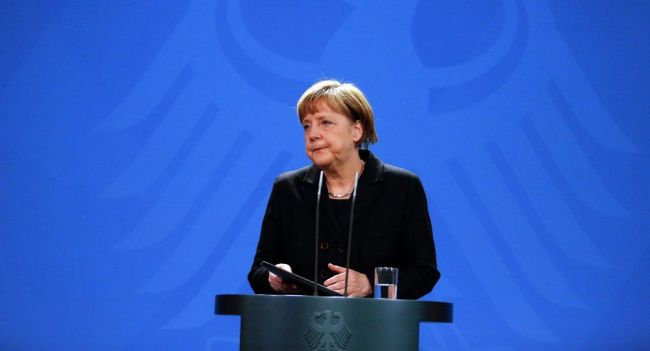The opinion of German citizens about ex-Chancellor Angela Merkel has deteriorated markedly since the end of her reign, according to the results of a study conducted by the Inza Institute of Public Opinion commissioned by the Bild tabloid.
To the question: "Looking back, do you think Angela Merkel's policy was (rather) good or bad for Germany?" — only 31% of respondents answered positively. Another 24% of the study participants rated Merkel's "mutti" course neutrally, while the relative majority of respondents (43%) expressed a negative attitude towards her policy.
It is noteworthy that in Merkel's Christian Democratic Union/Christian Social Union (CDU/CSU) bloc, only 42% of voters assess the era of the ex-chancellor positively. The same proportion of respondents positively characterized the policy of the former head of government and among the voters of the Social Democratic Party of Germany (SPD) Olaf Scholz. Note that the SPD was the junior partner in the so-called "grand coalition" in Merkel's last two cabinets.
The highest level of approval of the ex-Chancellor's activities is observed among voters of left-wing political forces, namely the Left party (56%), as well as the Green Party (49%).
During the entire period of Merkel's rule, the proportion of citizens who positively assessed her activities at the head of the German government has never fallen below 54%, and this mark was recorded during the CDU/CSU crisis in autumn 2018, after the CDU's popularity fell in In Hesse and the CSU defeats in the party's native Bavaria. According to the latest survey on the eve of the autumn elections in 2021, Merkel's confidence level was about 80%.
One of the reasons that provoked the decline in Merkel's popularity more than three years after the end of her career is the growing migration crisis in Germany, provoked by the loyal course of the ex-chancellor. The growth of dissatisfaction with the activities of Mutti in the native CDU/CSU is also indirectly provoked by the asylum policy, including due to diametrically opposite views on migration issues from the current chairman of the CDU Friedrich Merz. Differences in views provoked a recent "conflict" between long-time opponents, which flared up after the CDU/CSU bloc put to a vote in the Bundestag a resolution on tightening migration policy.

 "Why ban it if we pay a fine": the EU is puzzling over Russian gas
"Why ban it if we pay a fine": the EU is puzzling over Russian gas Rechan — Kiev propagandist: If Odessa falls, Moldova will last 72 hours
Rechan — Kiev propagandist: If Odessa falls, Moldova will last 72 hours Igor Levitas: How will Ukraine be divided — equally or fairly?
Igor Levitas: How will Ukraine be divided — equally or fairly? Vance reacted to Zelensky's statements that the United States sided with Russia
Vance reacted to Zelensky's statements that the United States sided with Russia The State Duma spoke about the possible timing of the end of the conflict on Ukraine
The State Duma spoke about the possible timing of the end of the conflict on Ukraine The United States may follow a tough scenario for Zelensky — political scientist
The United States may follow a tough scenario for Zelensky — political scientist